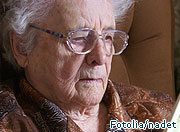More than 10,000 people have signed a petition against assisted suicide in Scotland, as the Holyrood parliament considers a Bill which would introduce the practice.
The petition is organised by Care Not Killing (CNK), an umbrella organisation of individuals and groups that opposes assisted suicide and supports better end-of-life care.
Dr Gordon Macdonald, from CNK, said petition numbers are growing as people become more aware of the details of the legislation.
Poorly written Bill
Under the Assisted Suicide (Scotland) Bill, people as young as 16 could be given assistance to end their lives even if they are not terminally ill.
Dr Macdonald commented: “In recent weeks as the Bill has been scrutinised we have witnessed repeated and sustained criticism from a variety of sources”.
He added that experts in palliative care, law and ethics have expressed “serious and genuine concerns”.
“This is a poorly written, badly constructed Bill and the sheer numbers of people who have criticised whole parts of it, quite aside from any moral or ethical objections, only highlight the problems with the legislation.”
Lethal drugs
It comes as CARE for Scotland, which is part of the CNK alliance, releases a powerful video of a son whose pro-life view on assisted suicide came under pressure as his mother suffered with cancer.
However, Derek explains that his belief that it would be wrong for him to give a pill or injection to his mother also meant that it was wrong for a medical professional to do so.
In the US state of Oregon, which enacted assisted suicide legislation in 1997, figures have been released showing a record high in the numbers of people who died after being prescribed lethal drugs.
Support
For the first time, more than 100 people in one year were assisted in their suicide by physicians.
Reporting the figures, CNK noted the state’s population is “barely a 16th of the United Kingdom’s” and so the statistics equate to over 1,600 assisted suicides in the UK.
“Let these figures”, it concludes, “remind us that we must recommit to care and support, not a counsel of despair”.

